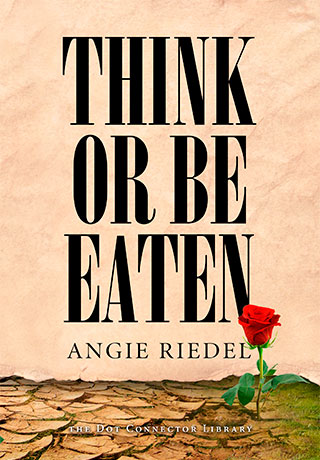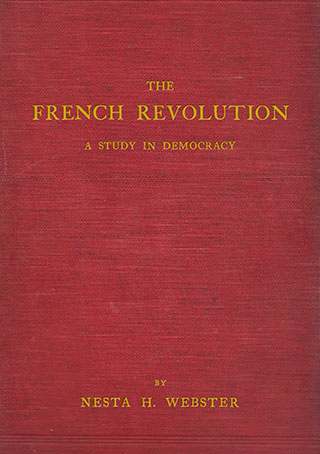Get Out of Your Own Way
“Surrender is the ultimate sign of strength and the foundation for a spiritual life. Surrendering affirms that we are no longer willing to live in pain. It expresses a deep desire to transcend our struggles and transform our negative emotions. It commands a life beyond our egos, beyond that part of ourselves that is continually reminding us that we are separate, different and alone. Surrendering allows us to return to our true nature and move effortlessly through the cosmic dance called life.�? — Debby Ford.
What if all the rules you believe in are nothing more than a cartoon in your head? It’s worth asking. What if the major obstacle in your way is your contagious need to obey? What if you were able to take the rules that work toward your own personal flourishing and leave behind the rules that prevent you from being the healthiest version of yourself? What would you have left over? What works and what doesn’t?
Answering such questions requires a kind of outside-the-box-looking-in perspective on things. How might your preconditioned state be driving your current state, and to what extent? How much of your willful intent is what you need/want and how much of it is what you’ve been conditioned to believe that you need/want? How much of your model of reality has been programmed by the unhealthy culture you grew up in?
And what would happen if you decided to reprogram it? What if the way forward is taking personal responsibility for questioning yourself, your culture, and your belief, and then using healthy reasoning to recondition your preconditioning? What then? Might you finally be forced to get out of your own way? Perhaps. But you’ll never know if you don’t at least give it a shot.
1) Let go of perfection
“Either you eat up yourself and others around you, trying for perfection; or you objectify that imperfection in a work, on which you then unleash your creative powers. In this sense, some kind of objective creativity is the only answer man has to the problem of life.�? — Ernest Becker.
On some level we all know perfection is impossible. Yet, somehow we all flounder with the need to be perfect. We seem to confuse getting better or becoming healthier with being the best and becoming perfect. When really, getting better and becoming healthier usually require dragging ourselves kicking and screaming through the thorny brambles of imperfection. We discover that it was only through rigorous and painstaking trial and error that we were able to transform our fragility into robustness.
Preoccupation with perfection is the main obstacle to a heroic life. It keeps us pinned to an inflexible two-dimensional board while the flexible three-dimensional universe moves on without us. When we worry about being perfect — whether regarding our minds, bodies, souls, work, or art — we dig ourselves into an ever-deepening hole of unworthiness. But when we’re able to let go of our need for perfection, we can potentially dig ourselves out of such holes and into an ever-flourishing sense of holistic worthiness.
2) Let go of expectation
“True brilliance is not a function of understanding one’s view of the world and finding order, logic, and spirituality in it. True brilliance is understanding that your view of order, logic, and spirituality is what created your world, and therefore being forever capable of changing everything.�? — Mike Dooley.
Moving forward, getting out of our own way, means becoming more imaginative. The greatest enemy to imagination is expectation. The greatest ally to imagination is disorientation. So how do we get to a state of non-expectation so that we can use disorientation as a tool for self-exploration? How do we roll with the punches, while learning from the pain of the punches, and also attempting to get punched less? Tricky-tricky. But there is a way.
Buddhist non-attachment, or detachment, is the most popular way. I call it cognitive aloofness, or remote Existenz: a kind of psychological distancing using a fly-by-the-seat-of-your-pants intuition while navigating an infinite Now despite the seemingly split duality of past and future.
But despite that hard-to-swallow pill, expectation about the way the world works can only get you so far before you’re stuck in an unimaginative rut. So let go of expectation. Slip into the mysterious. Allow the unfamiliar waters of a strange ocean to wash over your too-certain shoreline. Then dare yourself to re-imagine imagination itself.
3) Let go of belief
“Who’s more foolish, the fool? Or the fool who follows him?�? — Obi-Wan Kenobi.
I get it. Beliefs keep you warm and comfortable, safe and secure, coddled and content, pampered and protected. It’s difficult to pull yourself away from what has kept you sane, stable, ordinary, and in line with a cultural status quo that could make or break your survival.
It’s a pickle of the sourest proportions, an existential predicament that even causes the soul to pucker up. It’s challenging to negotiate between “the way it’s always been done�? and “a language older than words.�? After all, the hat rack of your beliefs is what you’ve hung the entire arsenal of your hats upon hitherto.
Sometimes our beliefs are in alignment with the way the universe actually works, and sometimes (most of the time) they are not. There is a gray area, but it is squeezed in upon by a very real healthy-unhealthy universal dictation that we are forced into navigating. Better to not be certain. Better to take the “hat rack�? into consideration as an option rather than the only option to hang our hats on. Better to wear the hats instead, transform them into thinking caps toward healthier ways of navigating an unpredictable and infinitely fascinating cosmos.
Get out of your own way by giving yourself the adventure of an unsafe, uncomfortable, rule-breaking, dogma-questioning, authority-shattering life over a boring, law-abiding, kowtowing, humdrum life of comfort and safety. Transform your worldview from dogmatic religiosity into spiritual bad-assery.
4) Let go of should-a, would-a, could-a
“May I feel all I need to feel in order to heal. May I heal all I need to heal in order to feel.�? — Marguerite Rigoglioso.
The past is a molehill turned into a mountain by our not allowing ourselves off the hook. Our inability to forgive our past selves is a constant obstacle for our current self. We’re constantly tripping over our past mistakes instead of turning those trips and falls into a part of the current dance. Those molehills and mountains can just as easily be transformed into stepping stones and transcendent rungs. We just need to be a little more imaginative about how we use the information gained from our experiences, good and bad. As Jack Kornfield said, “Forgiveness is giving up all hope for a better past.�?
Should-a, would-a, could-a gets us nowhere fast. It’s the equivalent of being the horse behind the cart, banging our heads into what should be behind us. Once we’re able to move out in front of the cart, we become a horse of a different color, and we discover that should-a becomes doing, would-a becomes willing, and could-a becomes intending.
We become proactive movers instead of retroactive whiners. And we’re able to transform the regrets of the past into vital information that we can use in the present. Before we know it, we’re out of our own way and the cart of our past is rolling smartly behind the horse of our present, and the future is wide open with possibilities.
5) Let go of letting go
“Give up defining yourself, to yourself or to others. You won’t die. You will come to life. And don’t be concerned with how others define you. When they define you, they are limiting themselves, so it’s their problem.�? — Eckhart Tolle.
Seem counterintuitive? Seem contradictory? Seem hypocritical? Good. Such is the human condition. All you can do is embrace it, learn from it, and let it go, without getting all caught up in letting it go. Surrender, but don’t be all serious about it. Just be sincere. Be authentic, but realize that true authenticity is just as elusive as perfection.
Letting go completely is just as impermanent as permanence. Getting too hung-up on not getting hung-up can also be a psychological hang-up. Sometimes the best thing to do is to just leave the phone off the receiver and move on smartly with the synthesis of your sense of humor dangling between thesis and antithesis.
Will there be pitfalls? Of course there will. Will there be impossible forks at improbable crossroads? Yup. Will you constantly trip over the tripwire of your own fallibility? You sure as hell will.
But there’s absolutely no reason why you cannot transform it all into an ingloriously glorious, perfectly imperfect, independently interdependent, non-dual dueling dance of cosmic proportions as you cheerfully surf the tidal wave of the Great Mystery into an ever-expanding, ever-astonishing, Greater Mystery. This is your life, and it’s your responsibility alone to get out of your own way so that you may live it to the fullest of your ability.
Digital discoveries
- Migliori Casino Online
- Casino Non AAMS
- Siti Casino
- Sites De Paris Sportifs Belgique
- Tous Les Sites De Paris Sportifs Belgique
- Meilleur Casino En Ligne Belgique
- Casino En Ligne Belgique Bonus
- I Migliori Casino Online
- Non Aams Casino
- Scommesse Italia App
- Migliori Casino Online Esteri
- Paris Sportif Crypto Sans Kyc
- Site De Paris Sportif
- Sweet Bonanza Avis
- Paris Sportif Ufc
- オンラインカジノ 出金早い
- Casino Live En Ligne Français
- Site De Paris Sportifs
- Meilleurs Nouveaux Casinos En Ligne
- Casino En Ligne Français
- Casino En Ligne
- Casino Retrait Instantané
- Casino En Ligne Fiable
- Meilleur Casino En Ligne 2026
- Casino En Ligne Retrait Immédiat
- Casino Français En Ligne
- Casino Italia Non Aams
- Casino Con Free Spin Senza Deposito
- Siti Di Scommesse Non Aams
- Migliore Casino Non Aams
- Casino Online Non Aams 2026
- 토토사이트 모음
- Top 10 Trang Cá độ Bóng đá
- Casino En Ligne
- Casino En Ligne France
- Casino En Ligne Argent Réel
- Casino En Ligne Retrait Immédiat 2026
- Nouveau Casino En Ligne 2026








